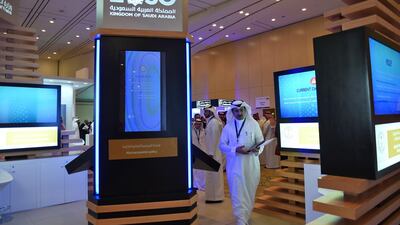Growth in Saudi Arabia's non-oil private sector picked up at the start of the third quarter on the back of sharper increases in output and new orders. Greater demand encouraged companies to purchase more materials and stimulated job creation in the sector.
The headline seasonally adjusted Emirates NBD Saudi Arabia Purchasing Managers’ Index – a composite gauge designed to give a single-figure snapshot of operating conditions in the non-oil private sector economy – rose from 54.3 in June to 55.7 in July. The PMI survey is sponsored by Emirates NBD and produced by IHS Markit.
This was alongside a robust improvement in overall business conditions, the strongest since April. However, the latest performance was weaker than the long-run series trend.
The main factors contributing to the upward trajectory of the non-oil private sector economy were sharper expansions in both new orders and output, the PMI report found. Anecdotal evidence highlighted greater projects, good economic conditions, stronger underlying demand and higher construction activity.
“Faster growth in output and new orders helped the headline PMI in Saudi Arabia rise in July, signalling the fastest rate of non-oil sector expansion in three months. Firms were more optimistic last month, and this likely contributed to increased buying activity and inventory accumulation,” said Khatija Haque, the head of Mena research at Emirates NBD.
Concurrently, June’s increase in new export orders was short-lived, with non-oil private sector companies reporting contraction in July. The rate of decline was fractional, however. Analysts cited weaker demand from international markets for Saudi Arabian goods and services.
Underlying data provided evidence of ongoing pressures on operating capacity as backlogs rose for the ninth consecutive month. Subsequently, firms increased their payroll numbers, but only marginally, the report found.
In response to greater output requirements, businesses scaled up their purchasing activity during July. Moreover, the upturn in input buying was the quickest since April. Subsequently, inventories rose substantially.
On the price front, input cost inflation quickened to the fastest since April and was solid overall. Underlying data suggested that cost pressures mainly came from higher purchasing prices. Staff costs rose only modestly in comparison, but at the fastest rate in 10 months. Analysts pointed to a general rise in market prices for raw materials. Firms raised their output charges, but only marginally amid reports of intense competitive conditions.
Future output data indicated that business confidence improved in July. Forecasts of a better economic scenario and promotional activities were the key factors boosting optimism at the start of the third quarter, the report found

